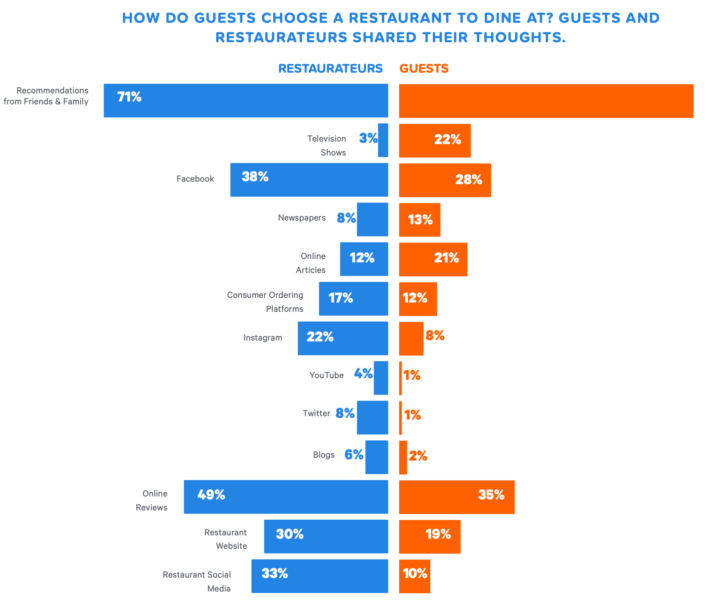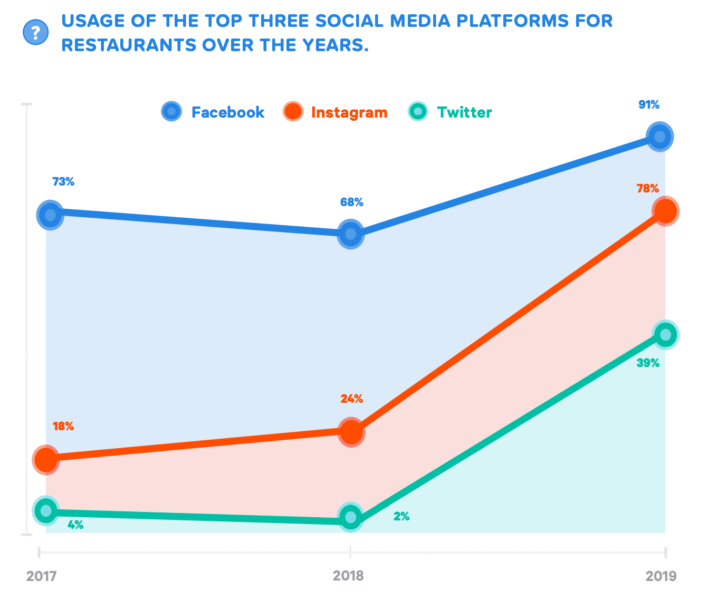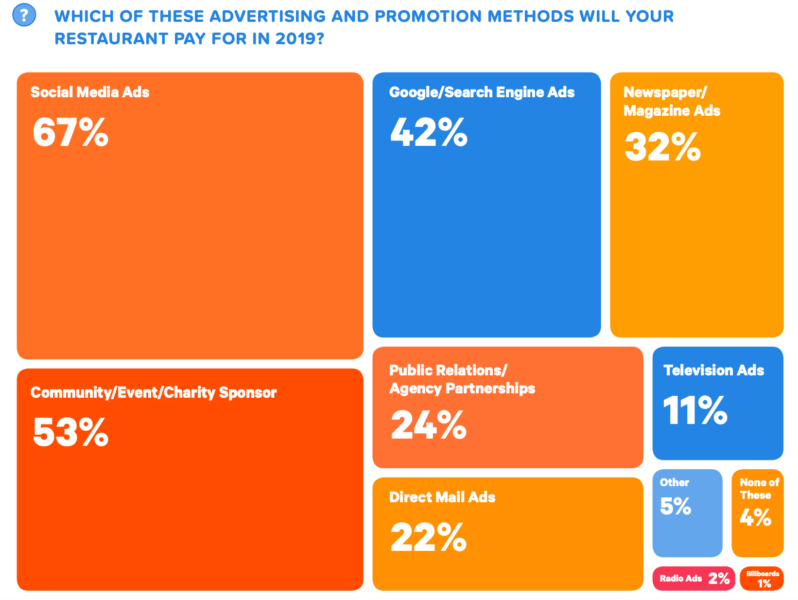Old school word of mouth the top influence. The survey asked how restaurants were chosen and compared the answers (perceptions) of restaurant owners and customers. While they were consistent at a high level, there were meaningful discrepancies between the responses.

Both owners and customers overwhelmingly said that the biggest driver of restaurant decision-making was “recommendations from friends & family.” After that, restaurant professionals weighted online marketing more heavily than consumers.
Review-influence gap. Beyond recommendations, online reviews were seen as having the greatest influence on customers (48%). That makes sense, given the totality of survey data. Yet only 35% of consumers in this survey cited reviews as an influence. Facebook was mentioned by 38% of restaurateurs though only 28% of consumers said the social site impacted their restaurant decisions. Indeed, “restaurant social media,” websites and Instagram were all valued by restaurant owners more heavily than by consumers.
Facebook, Instagram and Twitter were the top three social media platforms used by restaurants to market themselves. After that came LinkedIn, Snapchat and YouTube in much smaller percentages.

Organic search not mentioned but 42% buy SEM. Strangely, “Google” or “search” don’t appear on the list of consumer decision tools or influences. Elsewhere in the survey, 42% of restaurateurs say they will buy Google PPC ads this year.
However, in paid media social was the top focus with 67% saying they are buying or will buy social ads (read: Facebook). That was followed by sponsored local events, SEM, traditional print media, PR, direct mail and TV.

Reviews/social tracked by 30% of restaurants. More than 90% of restaurateurs said they valued online customer feedback. And the survey reflects that restaurants collect customer feedback through a variety of methods. Online reviews and/or social media were used by 30% of owners to monitor or capture customer sentiment. Comment cards, verbal feedback and responses to digital receipts were among a number of other methods.
Only 2% of owners said they took no action when receiving negative customer feedback. But less than 25% reported doing any direct customer outreach in response. The other reactions to feedback were internal-facing (e.g., reflect in server performance review).
Why we should care. Restaurants are traditionally the most-searched local business category and often a bellwether for larger industry trends. What’s striking here is the multitude of organic and paid marketing channels restaurants (as a stand-in for local businesses generally) are using and their apparent misunderstanding about the efficacy of these channels. The gap between perceptions of the importance of reviews or social media in consumer decision-making and consumers’ own statements are examples. Other surveys of course tell a different story.
One might argue that consumers are influenced, perhaps unconsciously, by multiple factors or may not accurately report how or why they chose a particular restaurant. Yet in this survey consumers are apparently much less impacted by restaurant marketing efforts than the restaurants believe they are.
This doesn’t mean, for example, that review collection and monitoring should be de-emphasized — not at all. What it suggests, in the abstract, is that local business owners need to take a sober look at all their marketing and probably consolidate their efforts around fewer initiatives.
